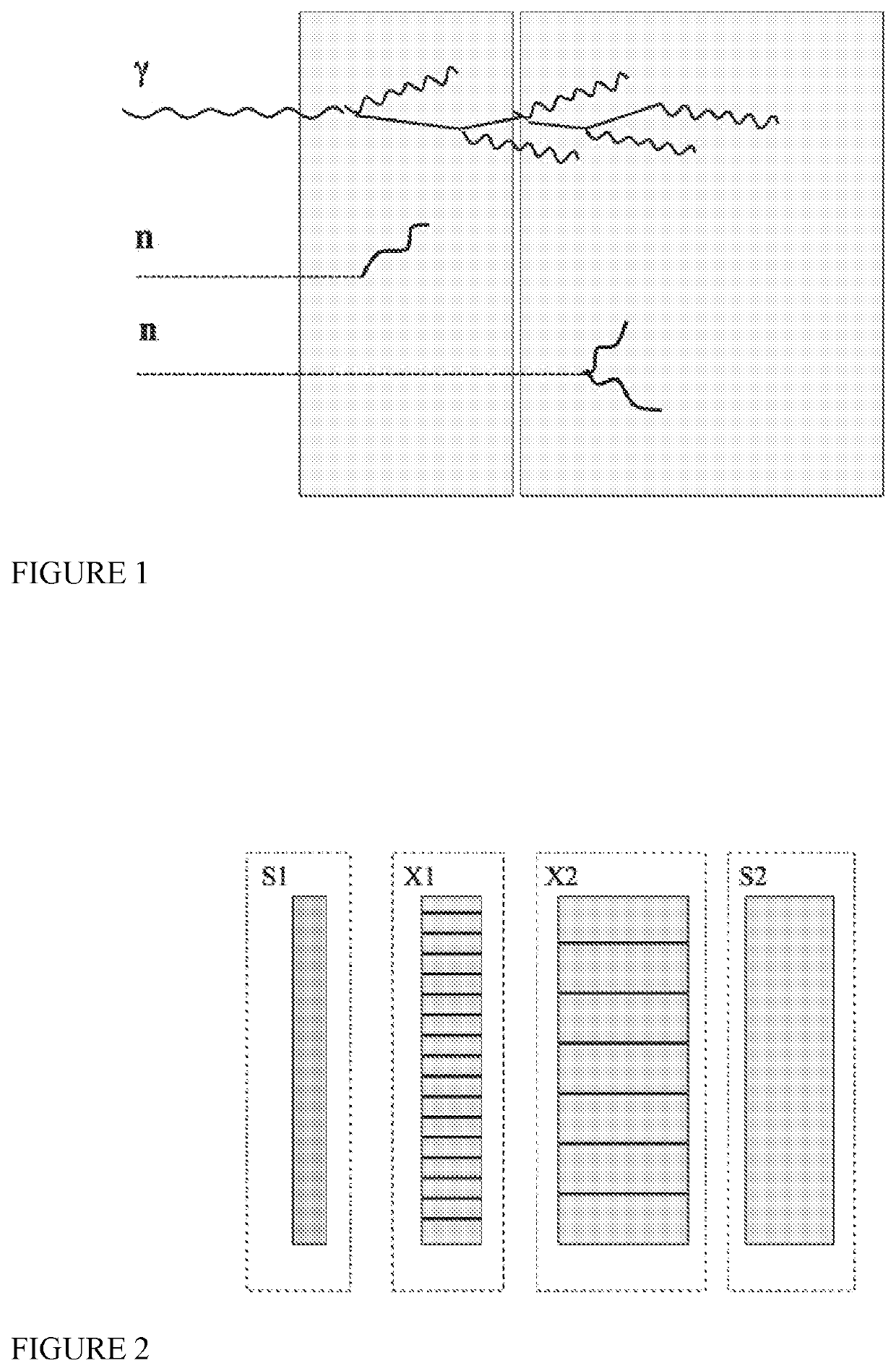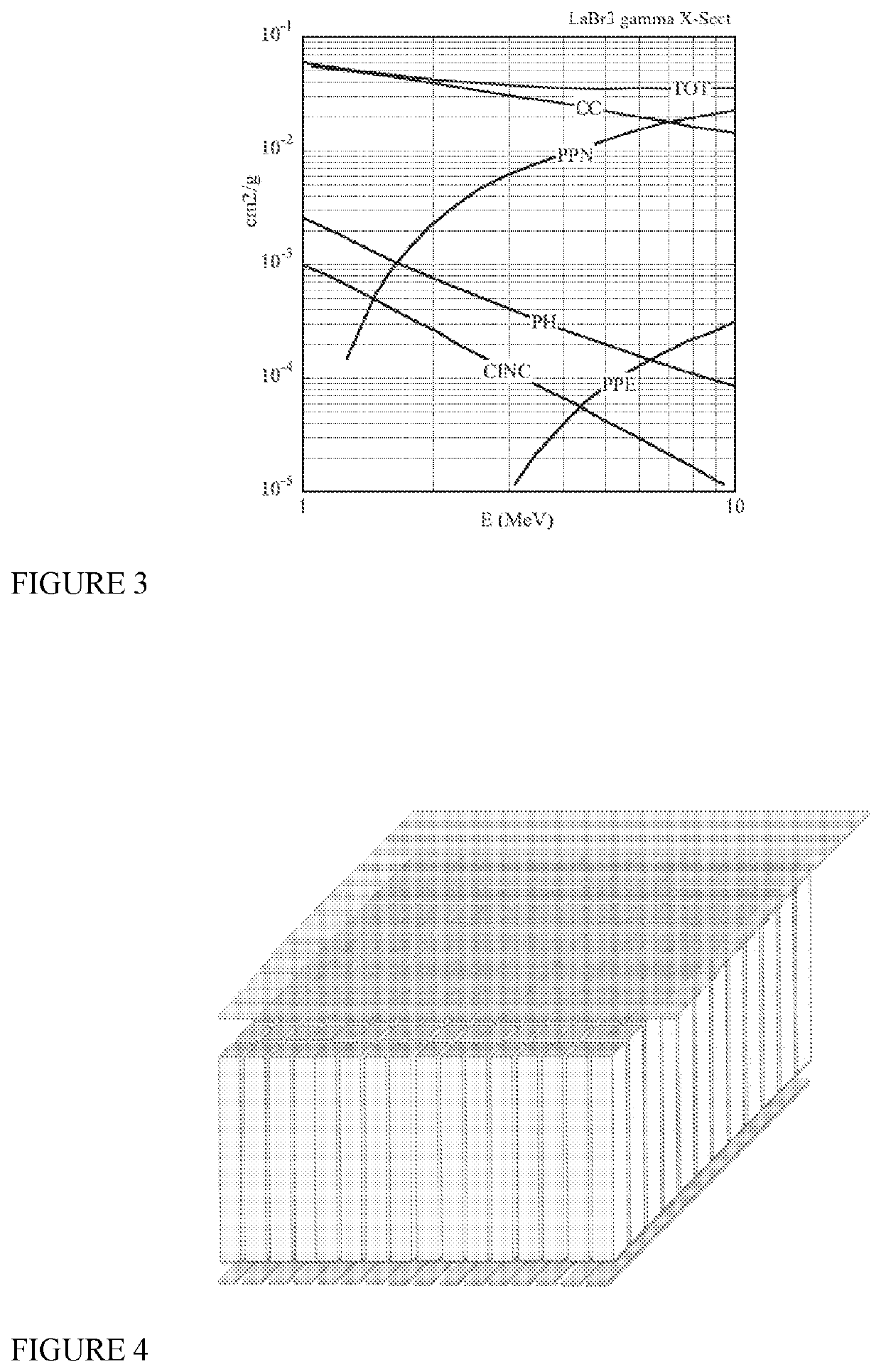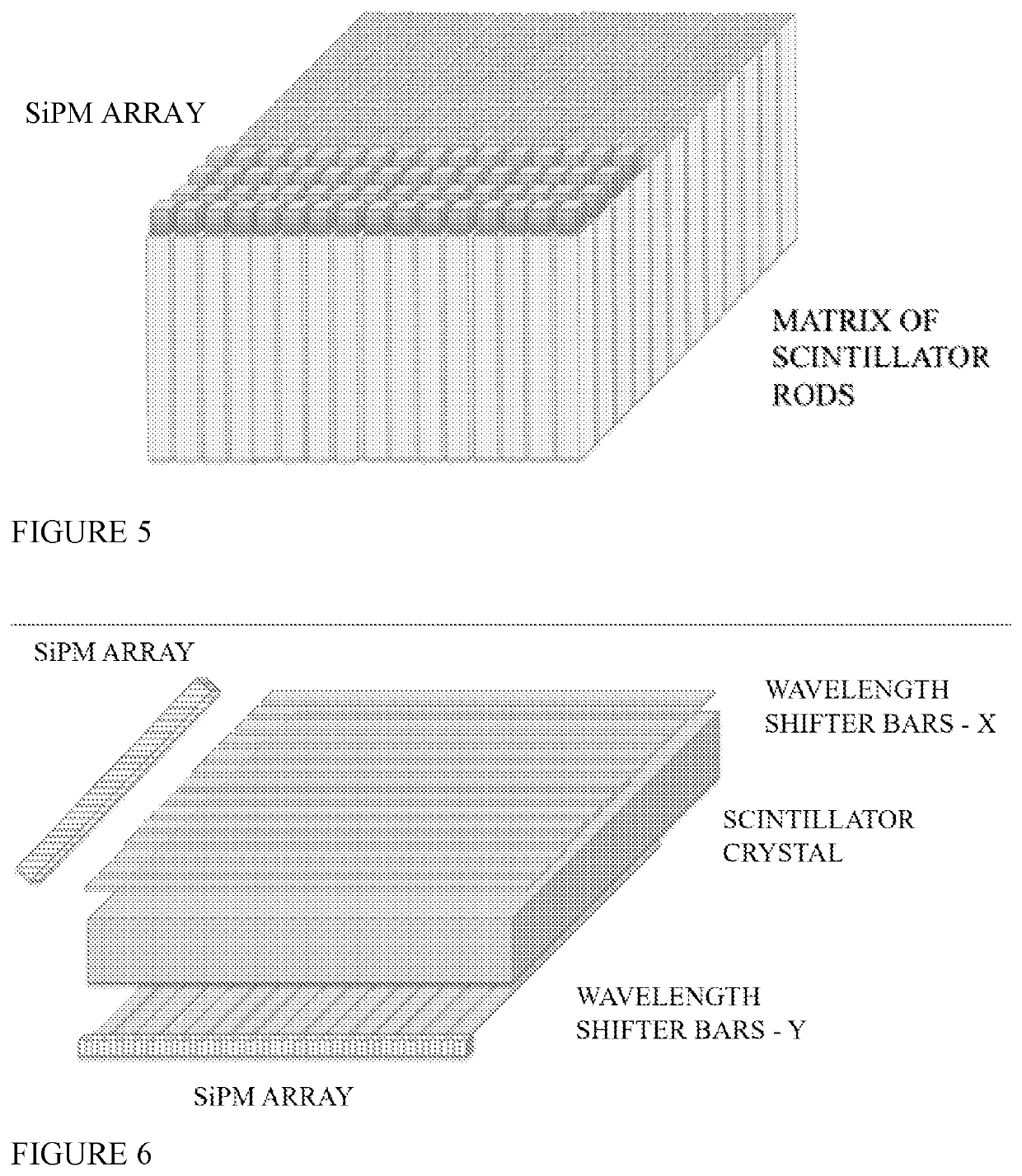Prompt gamma monitor for hadron therapy
a gamma monitor and hadron technology, applied in the field of prompt gamma monitors, can solve the problems of gamma ray detectors, however bulky and expensive, and are too sensitive to the intense neutron flux produced in the target area
- Summary
- Abstract
- Description
- Claims
- Application Information
AI Technical Summary
Benefits of technology
Problems solved by technology
Method used
Image
Examples
Embodiment Construction
[0023]The invention will be better understood hereafter, with some non-limiting examples and with the following figures:
[0024]FIG. 1: Operating principle of the dual-layer Prompt Gamma Monitor (PG-MON) according to the invention, with two contiguous and independent detection modules. Prompt gammas from the beam-target interactions interact in the first module and generate an electromagnetic shower propagating to the second module until full absorption, (The number of gammas in a shower is exaggerated for illustration purposes). The prongs due to neutrons interactions remain instead confined in only one of the two modules.
[0025]FIG. 2: Block schematics of the PG-MON (elements not to scale). X1 and X2 are independent scintillating crystals assemblies; S1 and S2 are light sensors used to detect and localize the scintillation photons. In one of the preferred embodiments, sensors arrays are mounted on both sides of each crystal assembly.
[0026]FIG. 3: Mass absorption coefficient of lantha...
PUM
 Login to View More
Login to View More Abstract
Description
Claims
Application Information
 Login to View More
Login to View More - R&D
- Intellectual Property
- Life Sciences
- Materials
- Tech Scout
- Unparalleled Data Quality
- Higher Quality Content
- 60% Fewer Hallucinations
Browse by: Latest US Patents, China's latest patents, Technical Efficacy Thesaurus, Application Domain, Technology Topic, Popular Technical Reports.
© 2025 PatSnap. All rights reserved.Legal|Privacy policy|Modern Slavery Act Transparency Statement|Sitemap|About US| Contact US: help@patsnap.com



